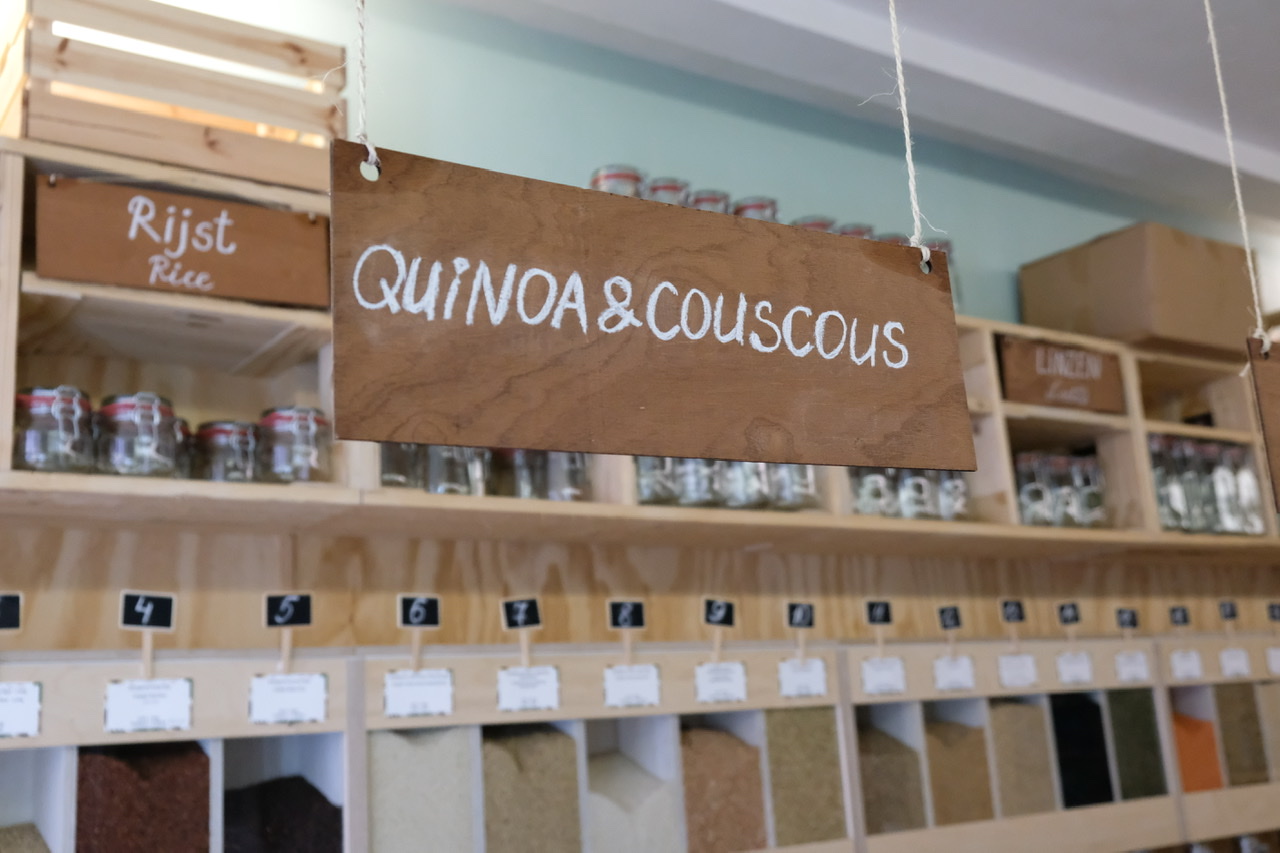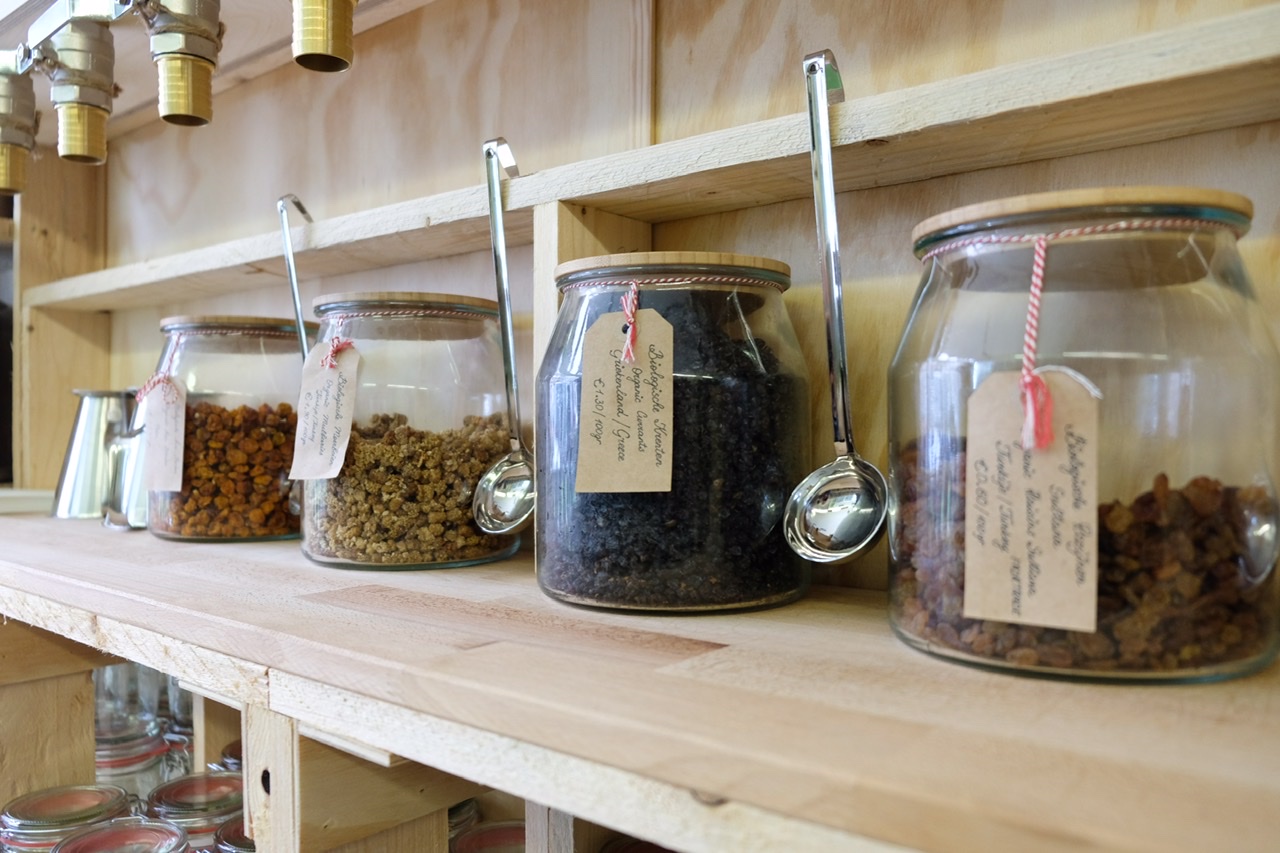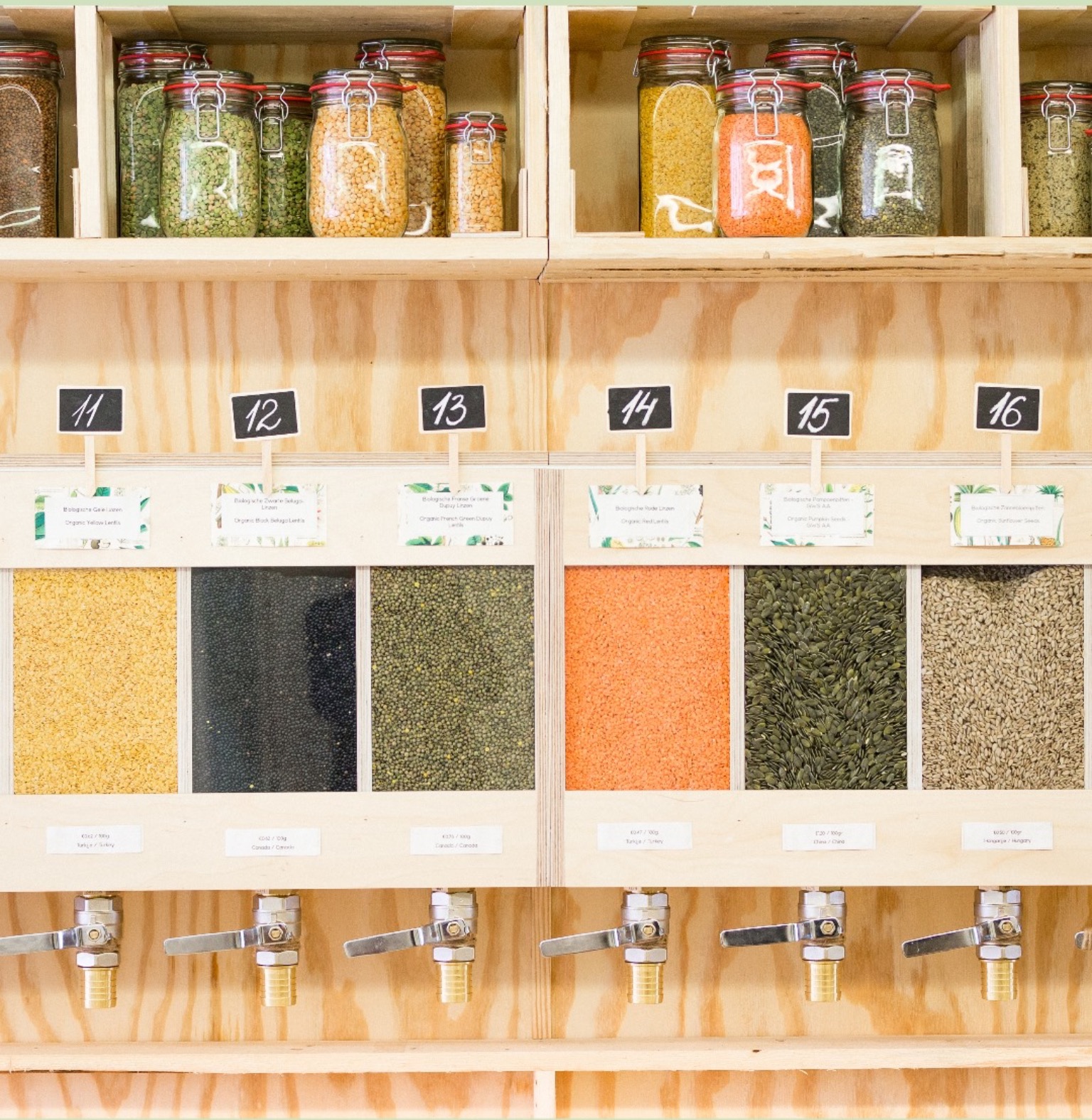
- Good Stuff -
- 4mins -
- 752 views
Little plant pantry is the supermarket of the future: from minimal waste to plant-based
Amsterdam’s Little Plant Pantry doesn’t just provide people with local, plastic-free, organic vegan food; it’s also a place for like-minded souls to connect.
Simplicity: All the food is vegan and the ingredients are sold without packaging
Whilst living in the remote Irish countryside, Winter and Maria Romanov-Hynes adopted a vegan lifestyle. After multiple trips to the local recycling center, the couple soon discovered that organic and plant-based doesn’t automatically mean free of waste. Winter says: “Every few weeks, I would fill up the boot of my car with plastic packaging. And half of it wasn’t even recyclable. It quickly made me realise that something needed to change, and that we needed to do it ourselves.”
Instead of waiting for companies or governments to act, Winter and Maria decided to take a leap of faith. In 2019, they packed up their things, moved to Amsterdam and opened the doors of their very own minimal waste, plant-based and organic food store. “The concept of Little Plant Pantry is pretty simple”, Winter says. “All the food is vegan and the ingredients are sold without packaging. People can bring their own containers, or use the ones we supply. And you can buy as much or as little of everything as you wish.”

A LOCAL ECONOMY with endless possibilities
In addition to buying from wholesalers, the store works with many local artisan food producers. “Because they don’t have a massive production chain, local producers are often willing and able to provide their products without packaging”, Winter explains. “And by sourcing our ingredients locally, we support the local economy and keep our food miles as low as possible.”
To show people how hearty and delicious vegan food can be, the store also has a fully equipped kitchen. “It’s the type of food your granny would make if she was vegan”, Winter says smiling. “When I just became vegan, it felt like I was giving up a lot of things. But over time, I discovered how much the plant-based kitchen has to offer. The world of vegan cuisine has truly opened my eyes. By cooking for others and showing them what you can do with the ingredients, I hope we can do the same for them.”

CHANGING HABITS In small steps
According to Winter, one of the main misconceptions about buying organic, vegan and minimal waste food, is that it’s more expensive. “Shopping at a place like ours, doesn’t necessarily cost more money. It just costs more time”, Winter explains. “And it requires a certain amount of creativity and flexibility. You have to plan ahead, do more cooking yourself and eat with the seasons. In my mind, it’s a small price to pay if it means we can create a food system that’s fair to all the inhabitants of this planet.”
Although Little Plant Pantry is doing the best they can, according to Winter, when you run a business that puts impact first, there is always room for improvement. “As soon as you solve one problem, it opens up a new one. There is no ‘right’ decision: everything you do has a hidden cost. That’s why we prefer not to call ourselves a zero waste store. Because somewhere in the chain, waste is always being created. In my mind, the only way to make a difference is by being transparent about the challenges we’re facing. So that together with our suppliers and customers, we can take a step in the right direction every single day.”

MORE THAN JUST A SHOP, Little Plant Pantry has restored winter’s FAITH IN HUMANITY
What makes Little Plant Pantry unique is that it’s much more than just a supermarket and food deli. It’s a place where like-minded people meet, connect and team up. Winter: “Eighty percent of our customers are regulars who share our values and we have great conversations with. People get genuinely excited by the fact that we’re providing them with a solution for a problem they didn’t know how to address and end up bringing their friends. Sometimes, they even thank us for opening the shop. That’s when you realise that all the work we’re putting in is worthwhile.”
Furthermore, Winter admits that the community element helped him to restore his faith in humanity. “It’s easy to sit at home and think the world is a bad place. Opening this shop made me realise the majority of people are good and want to do well. Both Maria and I are working 90 hours a week to make this happen. But being here makes us feel like we’re part of something that’s bigger than ourselves. We believe it’s a purpose worthy of sacrifice.”
This article was created in partnership with the Sustainable Urban Delta Foundation, inspiring and empowering cities to become food producing communities, creating a healthy and sustainable living environment.

